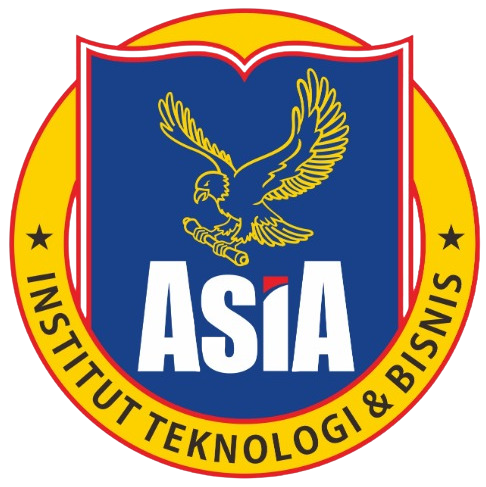DIMENSIONAL PERILAKU KEPEMIMPINAN MELAYANI DALAM MENINGKATKAN KINERJA DI DALAM PERAN, DENGAN KETERLIBATAN KERJA SEBAGAI MEDIASI
DOI:
https://doi.org/10.32815/jibeka.v17i2.1103Keywords:
Servant leadership behavior, job involvement, performance in rolesArticle Metrics
Abstract
The objective of this study is to investigate the behavior of servant leadership (BSL) in enhancing in role performance. The role of work involvement was also examined as a mediator by the researchers. The study employed a survey methodology to collect data from 128 civil servants in Central Kalimantan. Out of the total respondents, 96 individuals willingly and accurately completed the questionnaire. The employed analytical approach utilises the hierarchical component model (HCM) and entails the examination of the second-order model that encompasses a dual-layered structure within the partial least squares structural equation modelling (PLS-SEM) framework to assess the proposed hypotheses. The results indicate that the manifestation of servant leadership behaviour, also known as BSL, has the potential to enhance one's performance within their designated role. Furthermore, the construct of job involvement (JI), assumes a significant function as a mediator in the examined associations. This study aims to investigate the various dimensions of servant leadership behaviour and its impact on role performance within government organisations in Indonesia. Additionally, the study seeks to explore the potential mediating role of work involvement in this relationship.
Downloads
References
Ardichvili, A., Natt och Dag, K., & Manderscheid, S. (2016). Leadership Development: Current and Emerging Models and Practices. Advances in Developing Human Resources, 18(3), 275–285. https://doi.org/10.1177/1523422316645506
Canavesi, A., & Minelli, E (2022). Servant Leadership: a Systematic Literature Review and Network Analysis. Employ Respons Rights J 34, 267–289 https://doi.org/10.1007/s10672-021-09381-3
Gulati, R., Nohria, N., & Wohlgezogen, F. (2010). Roaring out of recession. Harvard Business Review, 88, 62–69.
Kanter, R. M. (1988). When a thousand flowers bloom: Structural, collective, and social conditions for innovation in organizations. Knowledge Management and Organizational Design, 10(1), 93-131
Kaya, B., & Karatepe, O. M. (2020). Does servant leadership better explain work engagement, career satisfaction and adaptive performance than authentic leadership? International Journal of Contemporary Hospitality Management, 32(6), 2075–2095. https://doi.org/10.1108/IJCHM-05-2019-0438
Khan, M. M., Mubarik, M. S., Ahmed, S. S., Islam, T., Khan, E., Rehman, A., & Sohail, F. (2021). My meaning is my engagement: exploring the mediating role of meaning between servant leadership and work engagement. Leadership & Organization Development Journal. DOI 10.1108/LODJ-08-2020-0320
Li, X., Sanders, K., & Frenkel, S. (2012). How leader-member exchange, work engagement and HRM consistency explain Chinese luxury hotel employees’ job performance. International Journal of Hospitality Management, 31(4), 1059–1066. https://doi.org/10.1016/j.ijhm.2012.01.002
Northouse, Peter G.. (2019). Leadership Theory and Practice (Eighth Edi). SAGE Publications, Inc.
Ozturk, A., Karatepe, O. M., & Okumus, F. (2021). The effect of servant leadership on hotel employees’ behavioral consequences: Work engagement versus job satisfaction. International Journal of Hospitality Management, 97, 102994. https://doi.org/10.1016/j.ijhm.2021.102994
Padilla, A., Hogan, R., & Kaiser, R. B. (2007). The toxic triangle: Destructive leaders, susceptible followers, and conducive environments. Leadership Quarterly, 18(3), 176.
Pakpahan, D. H., & Sambung, R. (2022). The impact of knowledge sharing on employee performance at Palangka Raya's health college. International Journal of Research in Business and Social Science (2147-4478), 11(5), 273-281.
Parr, J. M., & Teo, S. (2021). Exploration of a model of leadership relationships , work engagement , and patient outcomes. July 2020, 207–220. https://doi.org/10.1111/jan.14583
Podsakoff, P. M., & MacKenzie, S. B. (1989). A second generation measure of organizational citizenship behavior. Unpublished manuscript, Indiana University, Bloomington.
Russell, R. F. (2001). The role of values in servant leadership. Leadership & Organization Development Journal.
Sambung, R. (2020). Pelatihan dan Kepemimpinan Visioner dalam meningkatkan Kreativitas Pegawai di Kalimantan Tengah. Matrik : Jurnal Manajemen, Strategi Bisnis Dan Kewirausahaan, 169–181. https://doi.org/https://doi.org/10.24843/MATRIK:JMBK.2020.v14.i02.p04
Saleem, F., Zhang, Y. Z., Gopinath, C., & Adeel, A. (2020). Impact of servant leadership on performance: The mediating role of affective and cognitive trust. Sage Open, 10(1), 2158244019900562.
Sekaran, U., And, & Bougie, R. (2016). Research Methods for Business A Skill-Building Approach (seventh ed). John Wiley & Sons,.
Schaufeli, W. B., Bakker, A. B., & Salanova, M. (2006). The Measurement of Work Engagement With a Short Questionnaire : A Cross-National Study. https://doi.org/10.1177/0013164405282471
Shet, S. V. (2021). Leadership: making an impact, inspiring organization, and getting to the next level. Human Resource Development International, 24(2), 234–239. https://doi.org/10.1080/13678868.2020.1732732
Turner, J. R., & Baker, R. (2018). A review of leadership theories: identifying a lack of growth in the HRD leadership domain. European Journal of Training and Development, 42(7–8), 470–498. https://doi.org/10.1108/EJTD-06-2018-0054
Van Dierendonck, D. (2011). Servant leadership: A review and synthesis. Journal of management, 37(4), 1228-1261.
Wartina, T. S., Sambung, R., Kristinae, V., & Syamsudin, A. (2022). Kompetensi Kepemimpinan Dalam Meningkatkan Kreativitas Pegawai Melalui Pengembangan SDM Di Sanggar Seni Dan Budaya Kota Palangka Raya. Media Bina Ilmiah, 16(12), 7941-7950.
Downloads
Published
How to Cite
Issue
Section
License
Happy reading. Don't be shy to cite








